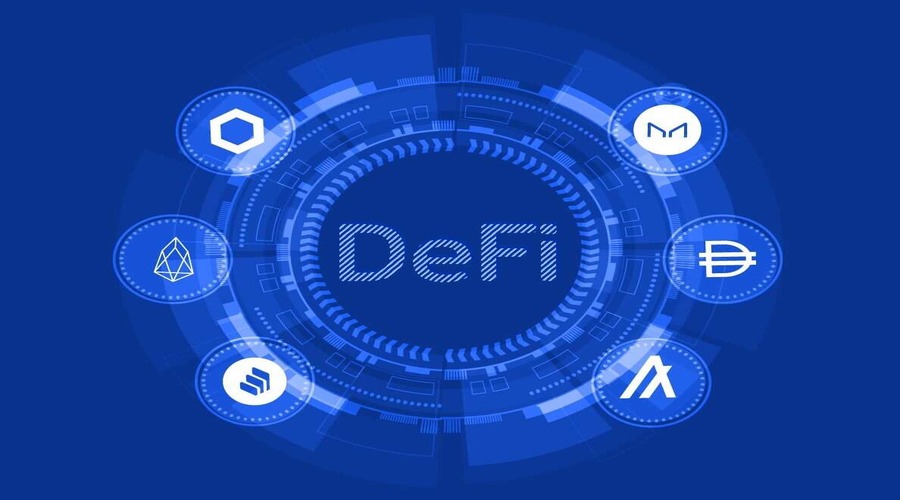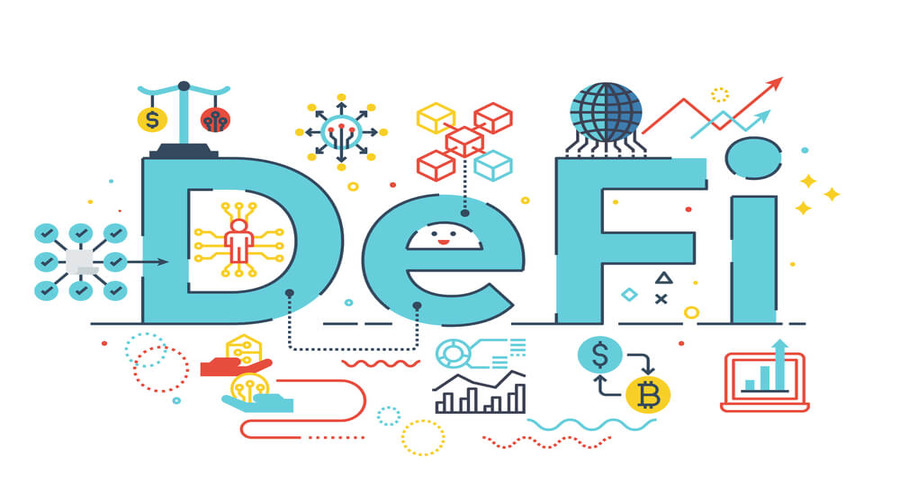
In recent years, the decentralized finance (DeFi) ecosystem has gained tremendous popularity and transformed the traditional financial landscape. DeFi platforms provide individuals with unprecedented access to financial services, eliminating intermediaries and promoting financial inclusion. However, as with any emerging industry, there are inherent risks involved. This is where the importance of insurance in the DeFi ecosystem becomes crucial. In this article, we will explore the significance of insurance and how it can safeguard the interests of participants in the DeFi space.
Understanding DeFi: A Brief Overview
DeFi refers to a decentralized financial system built on blockchain technology. It aims to provide open, transparent, and inclusive financial services without relying on traditional intermediaries like banks or insurance companies. DeFi platforms enable users to lend, borrow, trade, and earn interest on their digital assets, all within a decentralized ecosystem.
Risks Associated with DeFi
While DeFi offers exciting opportunities, it also comes with its fair share of risks. The decentralized nature of these platforms means that they are susceptible to smart contract vulnerabilities, hacks, and technical glitches. Additionally, market volatility and liquidity risks can pose challenges to participants. These risks can result in significant financial losses for individuals and undermine trust in the DeFi ecosystem.
The Need for Insurance in DeFi
Insurance plays a crucial role in mitigating risks and protecting participants in the DeFi ecosystem. By providing coverage against hacks, thefts, smart contract failures, and other unforeseen events, insurance brings a layer of security to users’ funds and investments. It instills confidence in participants, attracting more users to the DeFi space and promoting its overall growth.
Insurance Solutions in the DeFi Ecosystem
Various insurance solutions are emerging to address the specific needs of the DeFi ecosystem. Smart contract insurance is one such solution that focuses on protecting users against vulnerabilities in the underlying code. It provides coverage in the event of a smart contract failure or exploit. Additionally, decentralized insurance platforms are being developed, where users can pool their funds to provide insurance coverage collectively.

Benefits of DeFi Insurance
The availability of insurance in the DeFi ecosystem offers several benefits. Firstly, it protects users’ funds and investments, giving them peace of mind and encouraging greater participation. Insurance coverage also enhances the overall stability and resilience of the DeFi space, fostering its long-term sustainability. Furthermore, insurance can attract institutional investors who may have been hesitant to enter the DeFi market due to the associated risks.
- Protection: DeFi insurance provides protection against various risks such as smart contract vulnerabilities, hacks, thefts, and technical failures. It safeguards users’ funds and investments, giving them peace of mind.
- Trust and Confidence: Insurance instills trust and confidence in participants, attracting more users to the DeFi ecosystem. It helps mitigate the fear of potential financial losses, encouraging greater participation and adoption.
- Stability and Resilience: Insurance enhances the overall stability and resilience of the DeFi ecosystem. By providing coverage for unforeseen events, it contributes to the sustainability of the DeFi space, minimizing disruptions and maintaining user trust.
- Increased Participation: The availability of insurance in DeFi attracts individuals who may have been hesitant to enter the market due to risks. Insurance coverage lowers the barrier to entry, expanding the user base and promoting greater participation in DeFi platforms.
- Investor Attraction: Robust insurance solutions in DeFi can attract institutional investors who require additional security and risk mitigation. Insurance coverage makes DeFi more appealing to traditional financial players, potentially leading to increased investments and partnerships.
- Financial Protection: DeFi insurance acts as a financial safety net, offering compensation for losses incurred due to unforeseen events. This protection helps users recover their funds and investments, reducing the impact of potential financial setbacks.
- Innovation Encouragement: Insurance in DeFi encourages innovation by providing a secure environment for developers and entrepreneurs to experiment with new financial products and services. The availability of insurance coverage minimizes the fear of failure, fostering innovation and creativity in the DeFi ecosystem.
- Industry Growth: As the DeFi insurance market expands, it contributes to the overall growth of the industry. Insurance providers entering the DeFi space create a competitive landscape, leading to the development of better products, improved risk assessment methods, and more affordable premiums.
- Long-Term Sustainability: The presence of insurance in DeFi promotes the long-term sustainability of the ecosystem. It helps manage and mitigate risks effectively, reducing the potential for catastrophic events that could undermine the trust and stability of the DeFi space.
- Peace of Mind: Finally, DeFi insurance provides users with peace of mind. Knowing that their funds are protected and that they have recourse in case of losses allows participants to engage in DeFi activities with confidence and a sense of security.
Challenges and Limitations
While insurance in the DeFi ecosystem is a promising development, there are challenges and limitations that need to be addressed. One significant challenge is the lack of historical data for insurance providers to assess risks accurately. Additionally, pricing and underwriting insurance products in a decentralized and rapidly evolving environment present complexities. Overcoming these challenges requires collaboration between insurance providers, DeFi projects, and regulatory bodies to establish best practices and standards.
- Lack of Historical Data: DeFi insurance providers face challenges in assessing risks accurately due to the limited historical data available. The decentralized nature of DeFi platforms and their relatively recent emergence make it difficult to predict and quantify risks effectively.
- Complex Pricing and Underwriting: Pricing and underwriting insurance products in the DeFi ecosystem can be complex. The rapidly evolving landscape, coupled with the unique risks associated with decentralized finance, requires innovative approaches to determine premiums and coverage terms.
- Regulatory Uncertainty: DeFi operates in a regulatory gray area, and the absence of clear guidelines and frameworks can pose challenges for insurance providers. Uncertainty regarding compliance requirements and consumer protection regulations may deter some insurance companies from entering the DeFi insurance market.
- Smart Contract Risks: While insurance aims to mitigate smart contract risks, there is always a possibility of unforeseen vulnerabilities or exploits. Insurance providers need to continually adapt and develop new solutions to address emerging threats and protect users’ assets effectively.
- Counterparty Risks: DeFi insurance involves counterparty risks, as policies are often executed through smart contracts. The reliance on these automated systems introduces the potential for technical failures, which can impact claims processing and coverage fulfillment.
- Limited Coverage Options: The current landscape of DeFi insurance may have limited coverage options available. Certain risks may not be adequately addressed, and niche areas within the DeFi ecosystem might lack comprehensive insurance solutions.
- Lack of Standardization: The absence of standardized practices and protocols across DeFi insurance platforms can hinder interoperability and user experience. Insurance providers and projects need to collaborate and establish industry-wide standards to ensure seamless integration and streamlined processes.
- Claims Handling and Dispute Resolution: DeFi insurance providers need efficient mechanisms for claims handling and dispute resolution. The decentralized nature of the ecosystem can pose challenges in determining liability, assessing claims, and providing timely settlements.
- Education and Awareness: Building awareness and educating users about the importance and benefits of DeFi insurance is crucial. Many participants may be unfamiliar with the concept or skeptical of its effectiveness, requiring efforts to promote understanding and trust in insurance solutions.
- Market Volatility: DeFi insurance providers must navigate market volatility and liquidity risks, which can impact pricing, capital reserves, and overall sustainability. Fluctuations in the crypto market and DeFi space can pose challenges for insurance companies operating in this ecosystem.
It’s important to note that while these challenges exist, they also present opportunities for innovation and improvement in the DeFi insurance space.
Future of Insurance in DeFi
As the DeFi ecosystem continues to evolve, insurance will play an increasingly vital role. We can expect more sophisticated insurance products tailored to the specific risks faced by DeFi participants. The integration of oracles and real-world data will enable more accurate risk assessment, pricing, and claims settlement. Regulatory frameworks will also evolve to provide a conducive environment for insurance providers and ensure consumer protection.
Conclusion
Insurance is of paramount importance in the DeFi ecosystem. It acts as a safety net, mitigating risks and protecting participants from potential financial losses. As DeFi gains mainstream adoption, the availability of robust insurance solutions will be crucial in building trust and confidence among users. By embracing insurance, the DeFi ecosystem can foster a secure and resilient financial landscape that empowers individuals while promoting innovation and inclusivity.
FAQs
1. Do I need insurance if I participate in DeFi? While it is not mandatory, having insurance in the DeFi ecosystem provides an extra layer of protection against unforeseen events and financial losses. It is highly recommended, especially for those with significant investments.
2. Can insurance cover losses due to smart contract failures? Yes, certain insurance solutions in the DeFi space provide coverage against smart contract failures or vulnerabilities. These policies aim to compensate users for any losses resulting from such incidents.
3. Are decentralized insurance platforms reliable? Decentralized insurance platforms are still relatively new and evolving. While they offer innovative solutions, it is essential to conduct thorough research and due diligence before participating and ensure the platform’s reliability.
4. Will insurance premiums in DeFi be affordable? As the DeFi insurance market matures and more players enter the space, it is expected that insurance premiums will become more affordable. Increased competition and improved risk assessment methods will likely drive down costs.
5. How can I find reputable insurance providers in DeFi? When seeking insurance in the DeFi ecosystem, it is advisable to research and consider reputable providers that have a track record of transparency, security, and prompt claims settlement. Community feedback and reviews can also help in making an informed decision.
I have been writing about cryptocurrencies for over two years and I’m widely considered one of the most knowledgeable and respected authors in the space. I have a deep understanding of the underlying technology and market dynamics, and my insights have helped countless investors make informed decisions about their portfolios. I’m a speaker and commentator, and my work has been featured in major publications such as CoinDesk, Forbes, and The Wall Street Journal. I also run a popular cryptocurrency trading signals service that has helped thousands of people make money in the volatile but potentially lucrative world of digital assets.


